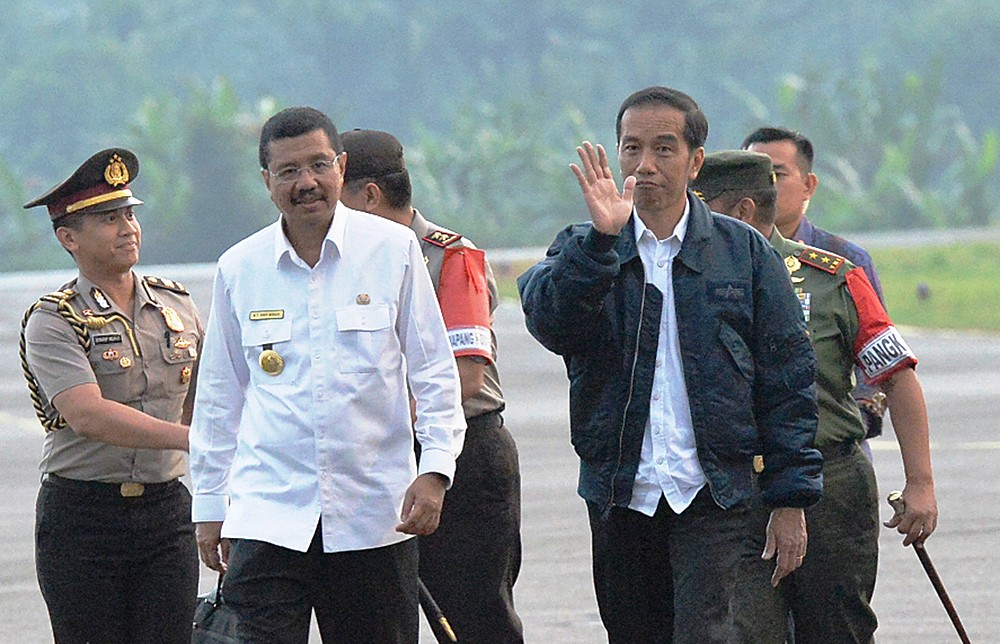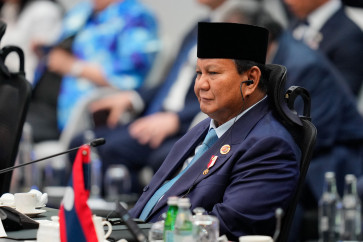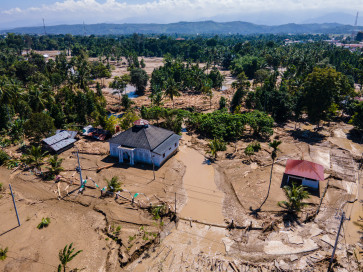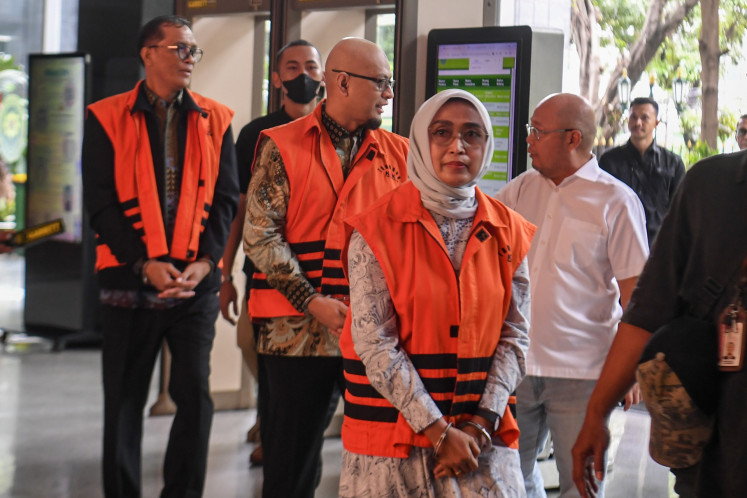Popular Reads
Top Results
Can't find what you're looking for?
View all search resultsPopular Reads
Top Results
Can't find what you're looking for?
View all search resultsBarus now symbol of ‘Islam Nusantara’
Whether it is historically accurate to say that Barus in Central Tapanuli is ground zero of the civilization of Islam Nusantara (Islam in the Archipelago) is irrelevant to President Joko “Jokowi” Widodo, who came all the way from Jakarta to the remote region in Sumatra to officiate a monument claiming exactly that.
Change text size
Gift Premium Articles
to Anyone
Whether it is historically accurate to say that Barus in Central Tapanuli is ground zero of the civilization of Islam Nusantara (Islam in the Archipelago) is irrelevant to President Joko “Jokowi” Widodo, who came all the way from Jakarta to the remote region in Sumatra to officiate a monument claiming exactly that.
The President, who is struggling to contain the rise of religious fanaticism, was here to send a message: that diversity is the nation’s wealth.
Barus, also known as Fansur, is a place where Islam harmoniously blends with not only local cultures but also influences from other great civilizations. It is the hometown of the legendary 16th century poet and mystic Hamzah Fansuri, who articulated the monist doctrine of wujudiyah.
On Friday, Jokowi officiated the Islam Nusantara Monument in the region as the ground zero of Islamic civilization in Indonesia, even though many scholars believe that Indonesian Islam began in Samudra Pasai, which is located in northern Aceh.
The President acknowledged the rich history of Barus.
“Today, I visited the Mahligai graveyard where many traders from the Middle East were buried. They are known as awliya [saints] who brought Islam to Indonesia through Barus.”
The President said he had known for years that the history of Barus, which means camphor, was recorded in ancient Egyptian manuscripts as camphor was used to preserve mummies.
Barus exported camphor to the Middle East in the past. One can thus find a number of historical sites like huge graveyards, gravestones that have ancient Persian writing and other historical artifacts in Barus.
(Read also: Jokowi to inaugurate center of Islam of the Archipelago)
In his remark, Jokowi said Indonesia was a pluralistic nation with 714 tribes, such as Asmat, Badui, Batak, Betawi, Bugis, Gayo, Sasak and Sunda, in 315 regencies and cities across the country. “This diversity is a treasure that we must be thankful for as in one region alone there are various types of greetings.”
North Sumatra Governor Tengku Erry Nuradi said that French archeologists found that from the ninth until the 12 century Barus was a trade center where Batak, Javanese, Arab and Tamil traders mixed with each other. “The main commodities at that time were spices and camphor,” Tengku said.
The form of Islam developed in Barus best represents the version of Islam Nusantara, Fuad Jabali, a historian from the Jakarta State Islamic University (UIN), said. Islam Nusantara is characterized by its inclusivity and in Barus the international aspects of Islam blends peacefully with local traditions.
“It must be symbolically understood that Jokowi acknowledges that the kind of Islam that Indonesia needs is an Islam that embraces differences. Islam Nusantara is an Islam that celebrates the diversity of local traditions and global traditions as shown by Barus in the past,” Fuad said.
The country’s largest Muslim organization, Nahdlatul Ulama (NU), supported Jokowi’s move, saying it could counter the narrative of Islam espoused by extremist groups. “The most important point the President wants to make is that Islam and culture cannot be separated in Indonesia. Islam and nationalism, Islam and tolerance for diversity as well as Islam and history cannot be separated,” NU deputy secretary-general Imam Pituduh said.










